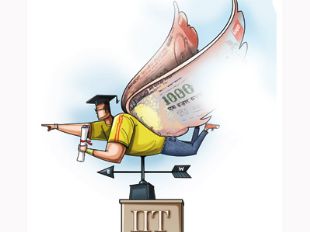
Mumbai, July 27: More and more Indians graduating from top global business schools, including Wharton, Harvard and Stanford, are spurning traditional job offers in favour of starting up new business ventures back home.
Wharton's MBA batch of 2012 had 70-80 Indians, of which 10-15 turned entrepreneurs. And in the current class of about 100 Indians, 15-20 are already entrepreneurs or are actively working towards founding their own businesses, according to ET estimates based on interviews with 10 alumni. Such instances were uncommon even as recently as 2009.
Harvard Business School saw 5-6 out of 30-35 Indian students turning entrepreneurs from its class of 2011, according to alumni estimates. It hardly had any Indian entrepreneurs five years ago. Similarly, Stanford's B-school saw a record-breaking 16% of its class of 2011 starting their own firms, with a significant number of Indians in the group.
"Global B-schools expose them (Indian students) to a strong entrepreneurial architecture with a greater number of role models, success stories and potential investors," says Kunal Bahl, founder and CEO of SnapDeal.com. "This gives them the much-needed confidence to do something of their own."
Bahl passed out of Wharton in 2006 and immediately started work on SnapDeal.
"This is definitely a key trend for our generation," says Anirudh Suri, an MBA from The Wharton School (University of Pennsylvania) class of 2012, who currently runs an early-stage venture capital fund, The India Internet Group.
"I have seen it among friends, and even as an early-stage investor, I have seen it among several entrepreneurs I have met," adds Suri, who also runs eksms.com that gives personalised recommendations for Mumbai restaurants over SMS, web or phone.
Adds Amrita Chowdhury, associate director-education at Harvard Business School India Research Centre: "Indians are more willing to take risks than earlier, when there was probably the fear of failure."




Comments
Add new comment